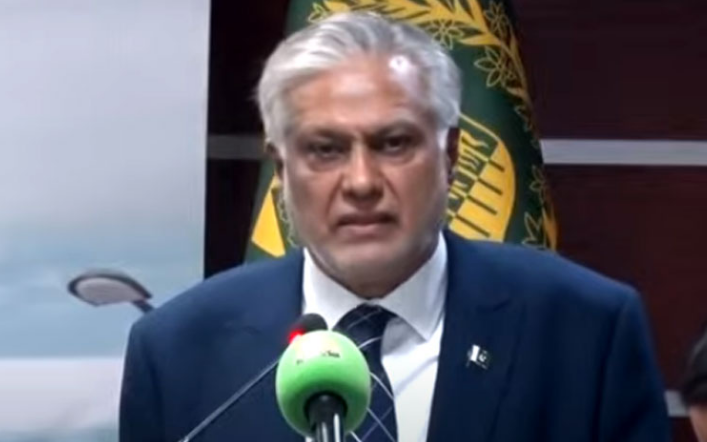Islamabad (Web Desk/Agencies): Deputy Prime Minister and Foreign Minister Mohammad Ishaq Dar on Tuesday underscored the crucial role of cooperation from all sectors in driving Pakistan’s development.
Addressing the groundbreaking ceremony of the office building foundation, Competition Commission of Pakistan (CCP), he emphasized the government’s commitment to propelling the nation’s economy through focused and collective efforts.
The deputy prime minister highlighted that Pakistan possesses immense natural resources, including vast reserves of minerals, granite, hydrocarbons, and stones, with an estimated value of over US$ 10 trillion, which could significantly contribute to the country’s growth.
Reflecting on the nation’s economic trajectory, Dar recalled that in 2013, Pakistan was classified as a macroeconomically unstable country, with predictions suggesting it would default within six to seven months.
Despite these grim forecasts, he pointed out that the nation managed to stabilize its economy in just three years, largely due to the successful completion of the first International Monetary Fund Programme (IMF) program between 2013 and 2016.
He noted that during this period, all major economic indicators showed positive results, including a record high in foreign reserves, a decline in inflation to 3.9%, and an increase in the stock market.
DPM Dar expressed optimism about the country’s future, asserting that Pakistan would soon take its rightful place on the global stage.
He explained that while the nation had already risen to the 24th position in the global economy by 2017-18, it was on track to join the ranks of the G-20 by 2030. According to Dar, the primary obstacle standing in the way of Pakistan's progress is strengthening its economic power.
The deputy prime minister also commented on the government’s efforts under the leadership of Prime Minister Shehbaz Sharif, marking the completion of one year in office.
DPM Dar said that during this period, the successful hosting of significant international events, including the Shanghai Cooperation Organization (SCO) Heads of Governments meeting and a high-profile conference on girls' education that attracted participation from dozens of countries.
Dar also focused on the role of the Competition Commission of Pakistan (CCP), which was established to address issues like market cartels and protect consumers.
He pointed out that Pakistan lacks the strong consumer protection organizations seen in the West, making the CCP's work even more critical in safeguarding the interests of the public and acting as a government regulator in this area.


